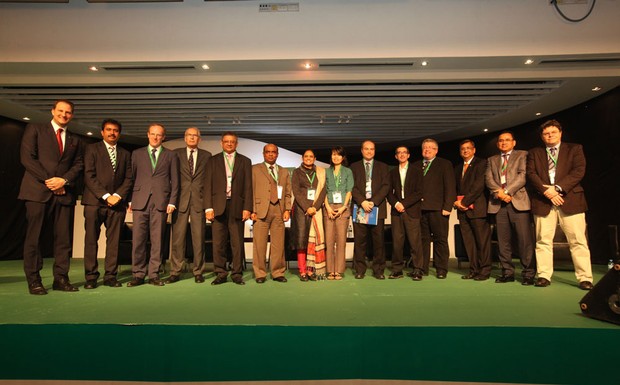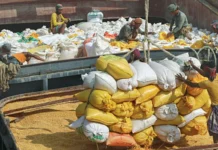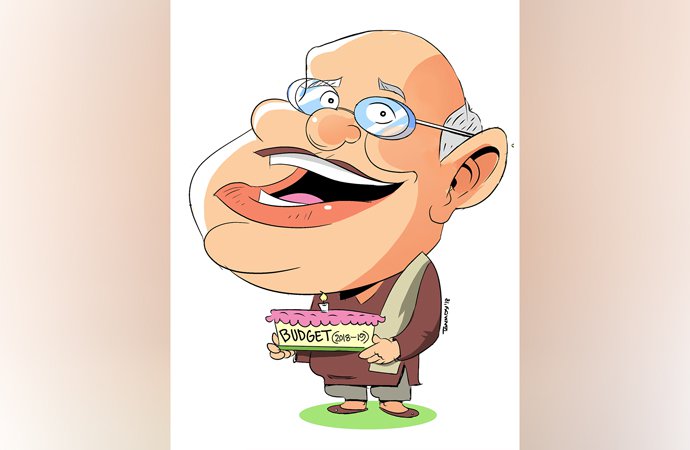“Bangladesh proudly stands on its own two feet,” its head of delegation in Dhaka Pierre Mayaudon said on Thursday at the third Global Social Responsibility conference.
“This is thanks to the hard work,” he said, “one could even say to the sacrifice, of millions of men and women.”
The EU is the largest trade partner of Bangladesh where all goods enjoy duty-free market access.
The biggest bilateral business chamber, the Bangladesh German Chamber of Commerce and Industry (BGCCI), organised the daylong conference with the support of the governments of Germany and Netherlands.
Top managers, experts and ambassadors of EU states took part in the conference.
Panel discussions were held on readymade garment and fire safety, leather industry, environment, social protection of workers, and Technical and Vocational Education and Training (TVET).
They highlighted innovative and responsible solutions to emerging challenges of water contamination, energy shortage, waste management, and social protection issues that grow with economic progress.
Ambassador Mayaudon said the EU was part of the team that had called for this global social responsibility “to emerge in Bangladesh and translate into tangible realities, for the betterment of ordinary people”.
He cited ‘sustainable compact’ that the EU rolled out after the worst-ever building collapse last year as the most recent such initiative.
He said the conference came just after the conclusion of a week marked by the Dhaka Apparel Summit, “which has been by all accounts a successful event”.
“This profusion of economy-related initiatives underlines a paradigm shift: Bangladesh is wilfully moving from aid to trade.”
“We all know it but the rest of the world is maybe less aware of this reality,” he said.
“Bangladesh is no longer a country it was at the time of A Concert for Bangladesh in 1971 with George Harrison and Ravi Shankar.
“It is not the country it was in the eighties when international assistance was still contributing to more than 10 percent of the GDP.
“Now it is less than 2 percent,” Mayaudon continued.
The ambassador cited ongoing development activities and said “it is certainly not even the country it will be in 10 years from now if you judge from so many mega projects in the making”.
“Around us in Gulshan and in other areas of the capital, state-of-the-art buildings are growing like mushrooms after the rain.
“They bear testimony of a quantum leap that is bringing Bangladesh into the 21st century,” he said, “New Bangladesh is on tracks.”
“The objective had been clearly set: being a middle income country by 2021 and reaching at that time a volume of $50billion of RMG exports.
“These objectives are not out of reach but they call for critical bottlenecks to be properly addressed,” the EU envoy said citing energy deficiencies, insufficient infrastructures, and land disputes as some of the most visible impediments.
He referred to the apparel summit where in the closing panel, the audience identified good governance as one of the most important factors ahead of all bottlenecks.
“It shows that there is a shared understanding on where the collective energies should be directed.”
The conference was themed on ‘shareholder value vs social responsibility’.
Chargé d’Affaires of the German Embassy Ferdinand von Weyhe said businessmen mindful of workers as well as environment could benefit by promoting their activities to buyers.
BGCCI Executive Director Daniel Seidl moderated the opening of the daylong conference.
Source: bdnews24










